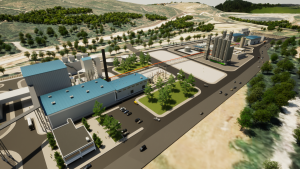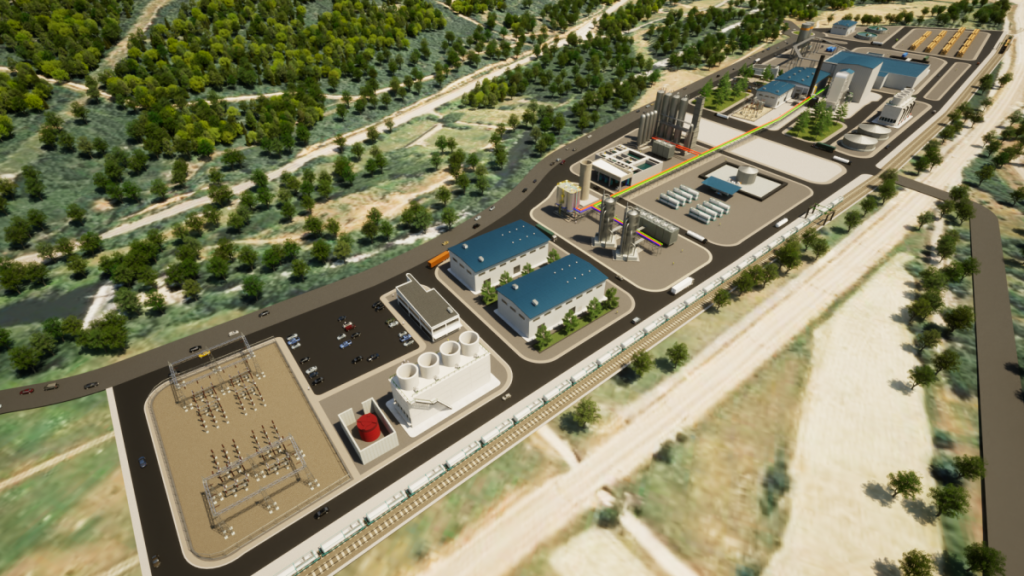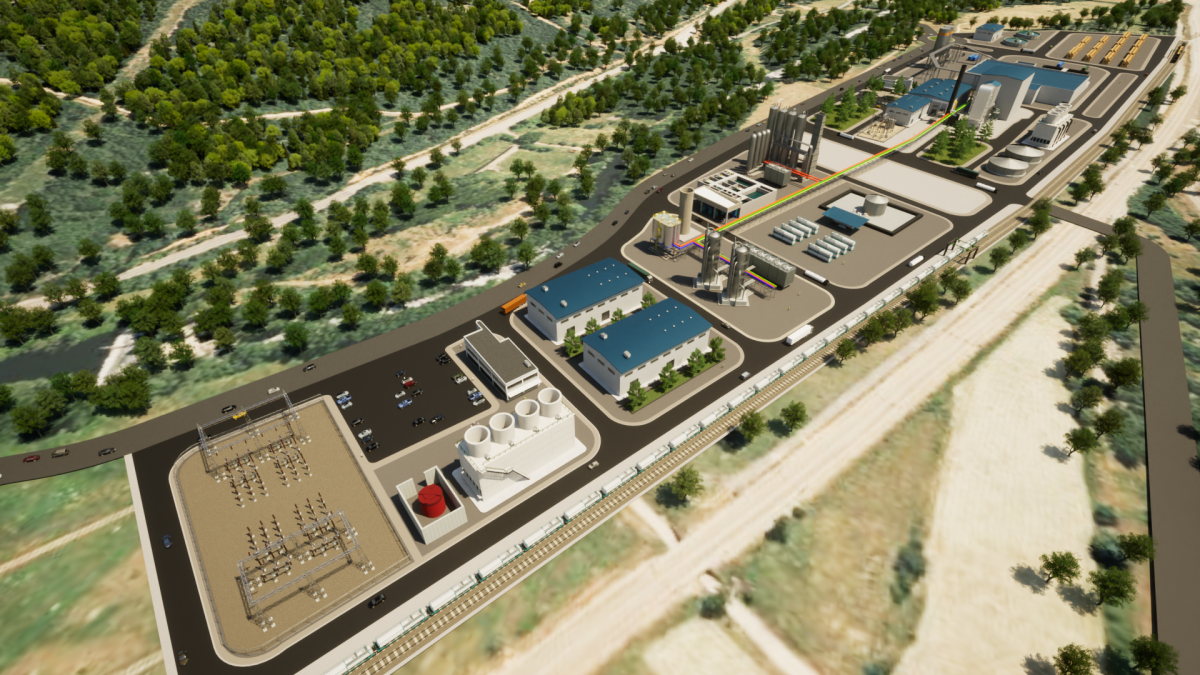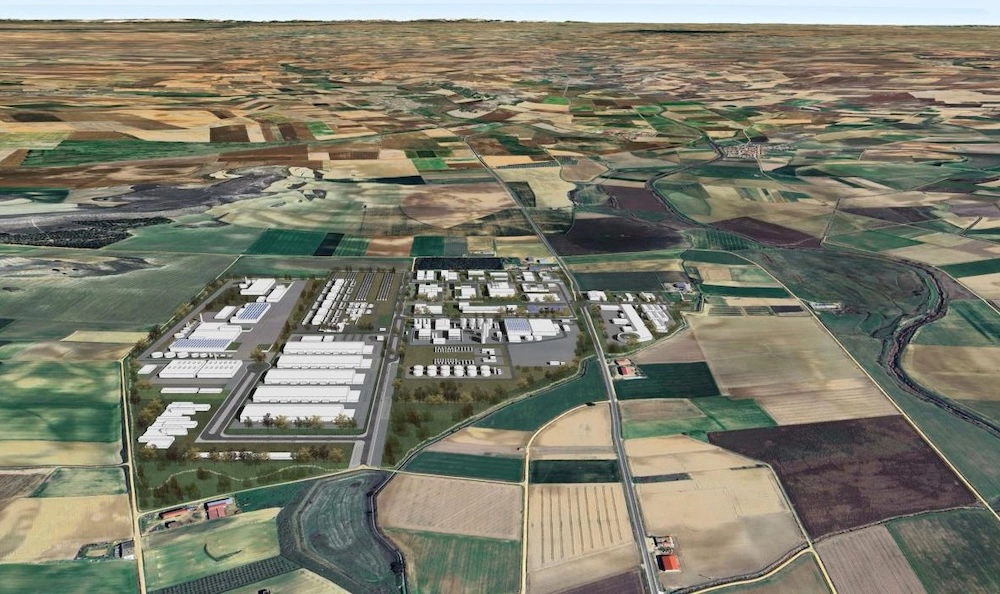Ramón Roca 06/02/2025. The project La Robla Green is getting closer to becoming a reality. Reolum, the company that developed it plans to begin construction this summer, presumably in June, as explained by the company's general manager. Yann Dumont to The Energy Newspaper.
In addition to being the largest green methanol production project in Europe, La Robla Green is considered the greenest project ever carried out in Europe since it is a project with a negative balance in CO2 emissions.
After many years of back-and-forth, the company has just secured the project's full permit. Dumont explained the process, which was not easy due to its complexity, including four plants with different technologies.
On the one hand, electricity and heat (cogeneration) are generated from corn straw biomass, abundant in the area. The heat captures CO2, which is therefore biogenic. Together with the renewable hydrogen obtained in an adjacent plant, methanol would be produced. This, along with renewable electricity, will be the final products sold.
"One of the most complex permits is obtaining water supply permits for this type of project, and we achieved it sooner than expected. It's not easy to obtain all the water needed," says Fernando Muñoz, deputy CEO and co-founder of Reolum. Both Dumont and Muñoz come from Forestalia, which they left five years ago to embark on this project.
EIB and investors
They look happy. They're getting closer to fulfilling their dream. All they need is a little push of almost €425 million from the European Investment Bank (EIB). "We're close to achieving it," Dumont assures.
La Robla Green will involve a total investment of €850 million, half of which will come from the EIB and the remainder from investor contributions and agreements with the Export Credit Agency. "I can't yet name the funds, but we have already agreed on financing with several funds."

Pharaonic construction
But a project of this magnitude is no small feat. Imagine the engineering behind it. We're talking about something unique in Europe. Four technologies, two products, electricity, and green fuel.
La Robla Green has connections for 250 MW of demand and another 50 MW of biomass generation. Of those 250 MW, approximately 200 MW are for electrolysis, making it the largest hydrogen project in Spain. The remaining 50 MW are for the methanol and carbon capture plant. Just a glance at the project's infographics shows the complexity of the project.
"It took us three years to build the entire project. Methanol production won't begin until well into 2028. The goal is to reach 140,000 tons of methanol per year," says the company's CEO.
What happens with the methanol produced? Reolum has already signed a contract to sell a large portion of the plant's production to a European, and more precisely, German, manufacturer, who is the one who is truly interested in purchasing these products to decarbonize their production processes. "I can't give any more details yet," Dumont says with a smile.
The methanol will first travel by train. Didn't you expect that? The project uses the old railway line from the La Robla thermal power plant to connect to the rail network and send the methanol to the port of El Musel, the closest to León. It could also be transported to Bilbao.
There, it will be shipped to Europe and unloaded at another port for final consumption. "It can also be used as fuel for maritime transport." They are considering transporting it to Algeciras to provide this supply service.

Raw material
Another complication of this type of project is obtaining the raw materials from which it all starts. In Spain, the problem is that there are no large farms; instead, a very high percentage are small farmers or ranchers. And of course, it's not easy to obtain the raw materials.
In this case, the La Robla Green project has taken a giant step forward by opting to make an effort and obtain a special boiler to process the corn straw itself.
This waste was difficult to manage, "because it's useless," but "we've managed to provide a solution for all the large corn producers in the area," says Muñoz. They spoke with several producers and signed a contract to supply corn straw for the biomass plant for many years, thereby generating electricity and heat.
So, they've practically got everything ready. Including hiring workers. More than 200 permanent jobs—110 in the project and 90 in the agro-industrial sector—will make La Robla Green a reality.
This will be Reolum's first project in Spain, but I assure you it won't be the only one. "We're already working on five or six other projects," but they haven't revealed any details yet.





